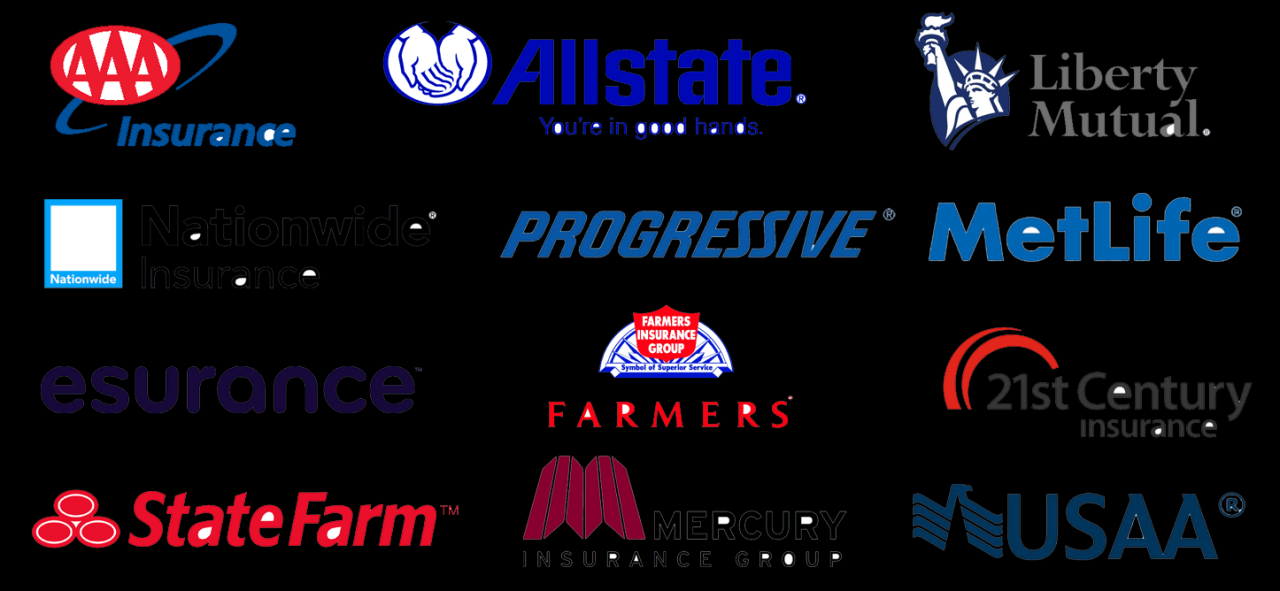Best insurance companies set the benchmark for reliable protection in an unpredictable world. With an array of options available, consumers often find themselves navigating through various policies to secure their assets, health, and peace of mind. This exploration delves into the elite players in the insurance sector, highlighting their offerings, customer service, and financial soundness, ensuring you make informed decisions.
By examining criteria such as customer satisfaction, industry ratings, and financial stability, we can identify top-rated insurers that stand out for their commitment to providing excellent coverage. From auto and home insurance to specialized policies, understanding the landscape of the best insurance companies prepares you to choose wisely in safeguarding your interests.
Overview of the Best Insurance Companies
The insurance industry is vast and complex, with numerous companies competing to offer the best services and coverage to consumers. The best insurance companies are evaluated based on a range of criteria, including customer satisfaction, financial stability, claims processing efficiency, and the variety of policies offered. Understanding these criteria is essential for consumers seeking reliable coverage that meets their specific needs.Determining the best insurance companies involves a thorough assessment of various factors. Key criteria include customer reviews, industry ratings, financial strength ratings from agencies like A.M. Best and Standard & Poor's, and the breadth of coverage options available. These elements collectively contribute to a company's reputation and reliability in the eyes of consumers.Top-Rated Insurance Companies
A variety of insurance providers have consistently earned high ratings from both customers and industry experts. Here are some of the top-rated insurance companies based on extensive customer feedback and industry evaluations:- State Farm: Known for its excellent customer service and a wide range of policy options, State Farm consistently ranks high in customer satisfaction surveys.
- GEICO: With competitive pricing and efficient claims processing, GEICO has gained a loyal customer base and is frequently recognized for its affordability.
- Progressive: Progressive offers unique coverage options like pay-as-you-go insurance and has received praise for its innovative approach to car insurance.
- Allstate: With a reputation for quality customer service, Allstate provides a comprehensive range of insurance products, including home, auto, and life insurance.
- USAA: Serving military members and their families, USAA is renowned for its exceptional customer service and competitive rates.
"Financial strength and a good reputation not only attract customers but also ensure long-term trust in the insurer's commitment to their clients."In conclusion, choosing an insurance provider involves more than just comparing prices; it requires evaluating the company’s overall reputation, financial stability, and customer satisfaction levels.
Types of Insurance Offered by Leading Companies

| Type of Insurance | Companies Offering | Common Features | Benefits |
|---|---|---|---|
| Auto Insurance | State Farm, Geico, Allstate | Liability, Collision, Comprehensive | Financial protection against vehicle damage and liability claims |
| Home Insurance | Farmers, Allstate, Liberty Mutual | Dwelling Coverage, Personal Property, Liability | Protection for home structure and personal belongings, liability coverage |
| Health Insurance | UnitedHealthcare, Anthem, Aetna | Preventive Care, Emergency Services, Prescription Coverage | Access to necessary medical services and financial support for health expenses |
| Life Insurance | Prudential, MetLife, Northwestern Mutual | Term Life, Whole Life, Universal Life | Financial security for beneficiaries and estate planning benefits |
| Disability Insurance | Guardian, Unum, MetLife | Short-term, Long-term, Partial Benefits | Income replacement during disability periods, peace of mind |
Specialized insurance policies help address specific risks, ensuring comprehensive protection tailored to individual lifestyles.Moreover, some companies offer unique endorsements and riders that enhance standard policies. For example, a home insurance policy might include flood insurance as an additional rider, or an auto insurance plan could feature roadside assistance. These customized options allow policyholders to tailor their coverage and ensure they are adequately protected against their unique risks.
Customer Service and Claims Process

Customer Service Practices
The top insurance companies demonstrate a commitment to customer service through a range of practices aimed at enhancing the client experience. These practices include:- 24/7 Availability: Many leading insurers provide round-the-clock support, allowing customers to reach help at any time.
- Dedicated Claims Representatives: Assigning specific representatives to handle claims can streamline the process and reduce confusion.
- Self-Service Options: Online portals and mobile apps enable clients to manage policies and submit claims at their convenience.
- Feedback Mechanisms: Regularly seeking customer feedback helps companies adjust their services to meet client needs better.
Claims Process Steps, Best insurance companies
The claims process is a critical aspect of the insurance experience. Major insurance companies have standardized steps that clients follow to ensure their claims are handled efficiently. A typical claims process includes:- Notification: The policyholder notifies the insurer of an incident that may lead to a claim.
- Documentation: Clients gather necessary documentation, such as police reports, photographs, and receipts.
- Claims Submission: The claims form is filled out and submitted, either online or through a representative.
- Assessment: The insurance company reviews the claim, often involving insurance adjusters to evaluate damages.
- Decision: A determination is made regarding approval or denial, and the client is informed.
- Payment: If approved, compensation is issued to the policyholder or directly to service providers.
Customer Experiences with Claims Handling
Real-life testimonials highlight the importance of effective claims handling in customer satisfaction. For instance, one policyholder shared their experience with Company C, noting, "I was involved in a car accident, and the claims process was seamless. My claims representative guided me through each step, and I received my payout within a week." Such positive experiences not only reinforce loyalty but also encourage referrals.Contrastingly, a case study involving Company D revealed issues with claims delays, where a customer expressed frustration over a prolonged claims process. They reported, "It took over a month to resolve my claim, which left me feeling unsupported in a difficult time." This scenario emphasizes the need for insurance companies to continually refine their claims processes to avoid customer dissatisfaction.Cost and Coverage Comparisons: Best Insurance Companies
Insurance costs are a vital consideration when choosing a policy. The premium rates can significantly differ among various insurance companies, even for similar coverage levels. Understanding these differences allows consumers to make informed choices, potentially saving them substantial amounts on premiums while ensuring they receive adequate protection.Several factors influence insurance rates, including the applicant's age, location, credit score, and claims history. Insurers utilize complex algorithms to assess risk, which can lead to variations in premium costs even for comparable coverage. Additionally, companies may prioritize certain factors differently, resulting in diverse pricing structures for the same type of policy.Premium Comparison Table
To illustrate how premium costs can vary among leading insurance companies, the following table provides a comparison of annual premiums for similar policies. The data is based on a standard coverage level for auto insurance across major insurers.| Insurance Company | Annual Premium | Coverage Limits |
|---|---|---|
| Company A | $1,200 | $100,000/$300,000 |
| Company B | $1,150 | $100,000/$300,000 |
| Company C | $1,300 | $100,000/$300,000 |
| Company D | $1,100 | $100,000/$300,000 |
Factors Influencing Insurance Rates
Several key factors can impact the cost of insurance premiums. Understanding these can help consumers negotiate better rates.- Age: Younger drivers typically face higher premiums due to lack of driving experience.
- Location: Urban areas with higher accident rates often lead to increased premiums.
- Credit Score: Many insurers consider credit history as an indicator of risk, which can affect rates.
- Claims History: A record of frequent claims can raise premiums due to perceived risk.
- Coverage Type: Comprehensive and collision coverage generally cost more than basic liability coverage.
Maximizing Coverage and Minimizing Costs
Consumers can enhance their coverage while keeping premiums manageable through strategic choices. Bundling multiple policies with the same insurer often leads to significant discounts.- Bundling Discounts: Combining auto and home insurance with one provider can save up to 25% on premiums.
- Multi-Car Discounts: Households with more than one vehicle may qualify for reduced rates on additional cars.
- Safe Driver Discounts: Maintaining a clean driving record can lead to lower premiums over time.
- Annual Payment Discounts: Paying premiums annually rather than monthly can often lead to savings.
- Loyalty Rewards: Long-term customers may benefit from loyalty programs that provide discounts or enhanced coverage options.
FAQ
What factors should I consider when choosing an insurance company?
Consider factors such as financial stability, customer service ratings, coverage options, and premium costs.
How can I lower my insurance premiums?
You can lower premiums by bundling policies, maintaining a good credit score, and taking advantage of discounts offered by insurers.
What types of insurance should I prioritize?
Prioritize insurance based on your personal needs, but generally, health, auto, and home insurance are essential for most individuals.
How do I file a claim with an insurance company?
To file a claim, contact your insurance provider directly, provide necessary documentation, and follow their specific claims process.
What is the importance of reading insurance reviews?
Reading reviews provides insights into customer experiences, helping you assess an insurer's reliability and service quality.
When considering auto insurance options, many find that seguro geico offers comprehensive coverage at competitive rates. This insurance provider is praised for its customer service and user-friendly online platform, making it easy for policyholders to manage their plans efficiently. With various discounts available, Geico stands out as a practical choice for many drivers.
In the realm of home coverage, friguey insurance emerges as a reliable option tailored to meet diverse homeowner needs. Their policies are designed to provide peace of mind, whether you're renting or owning a property. With customizable plans and a focus on customer satisfaction, Friguey Insurance is worth considering for anyone looking to secure their home.